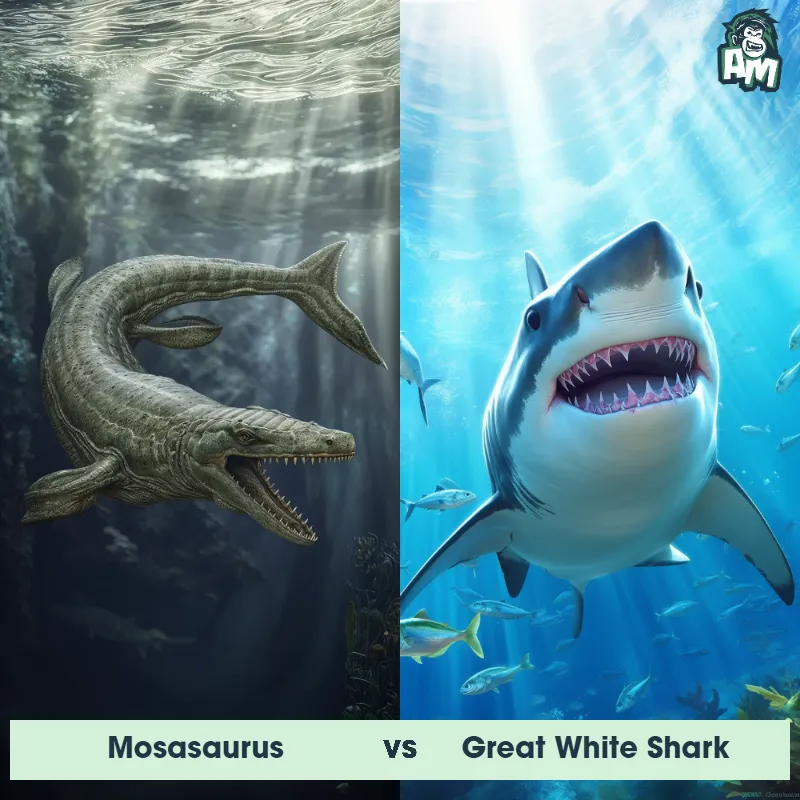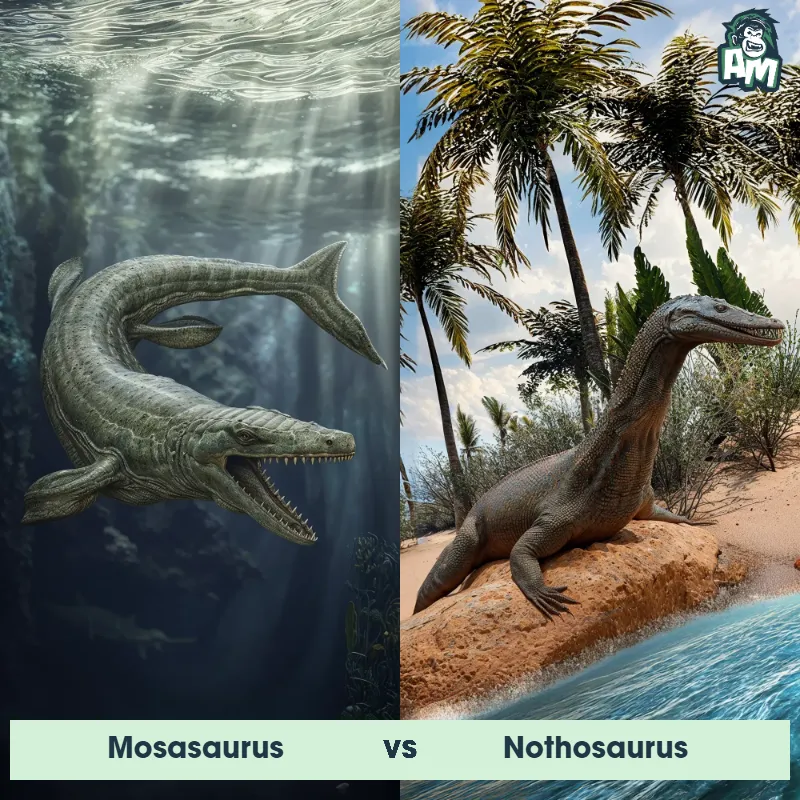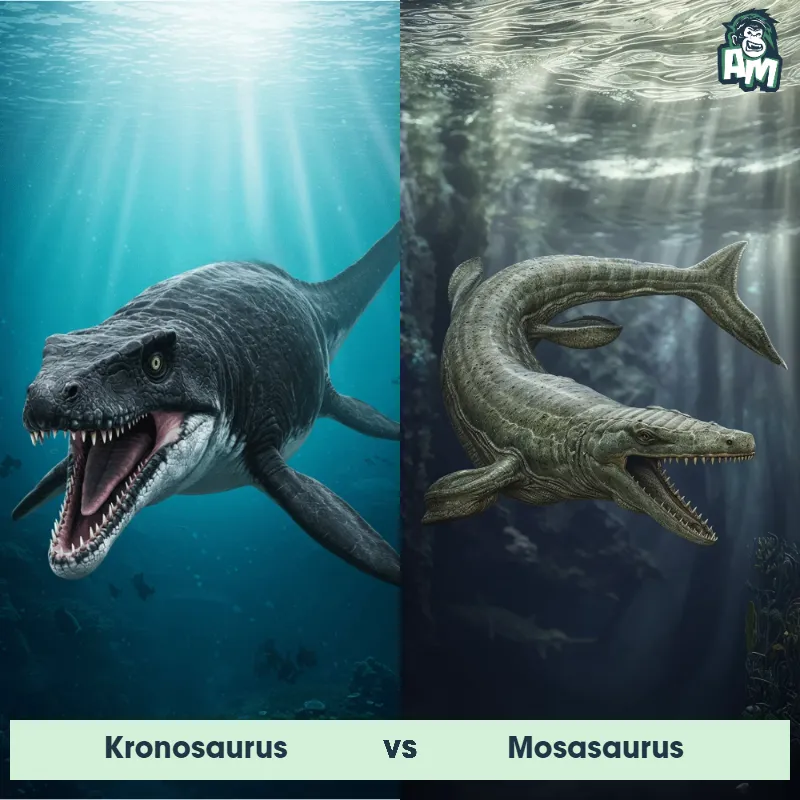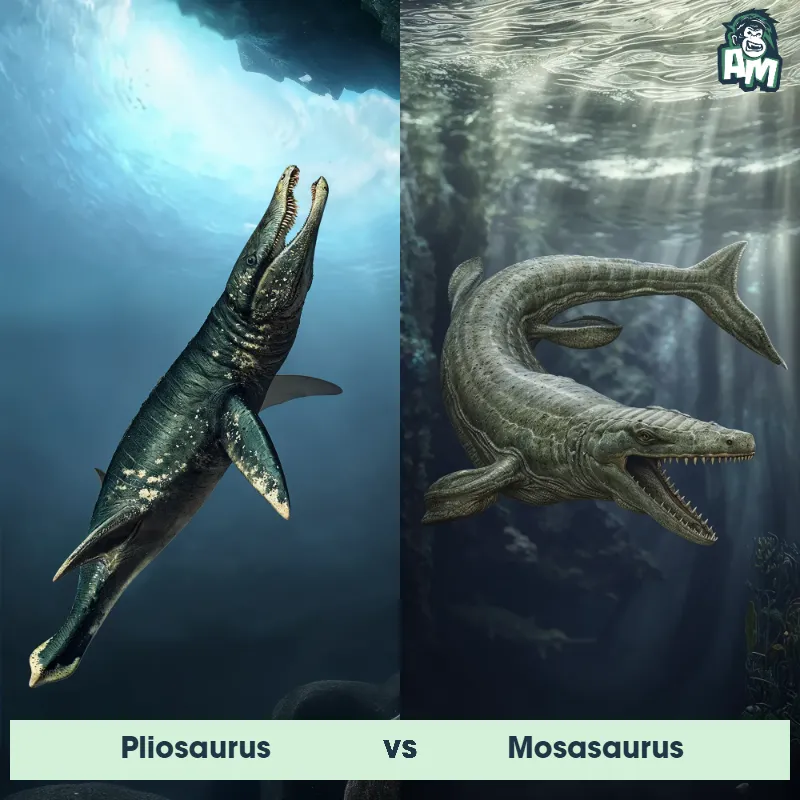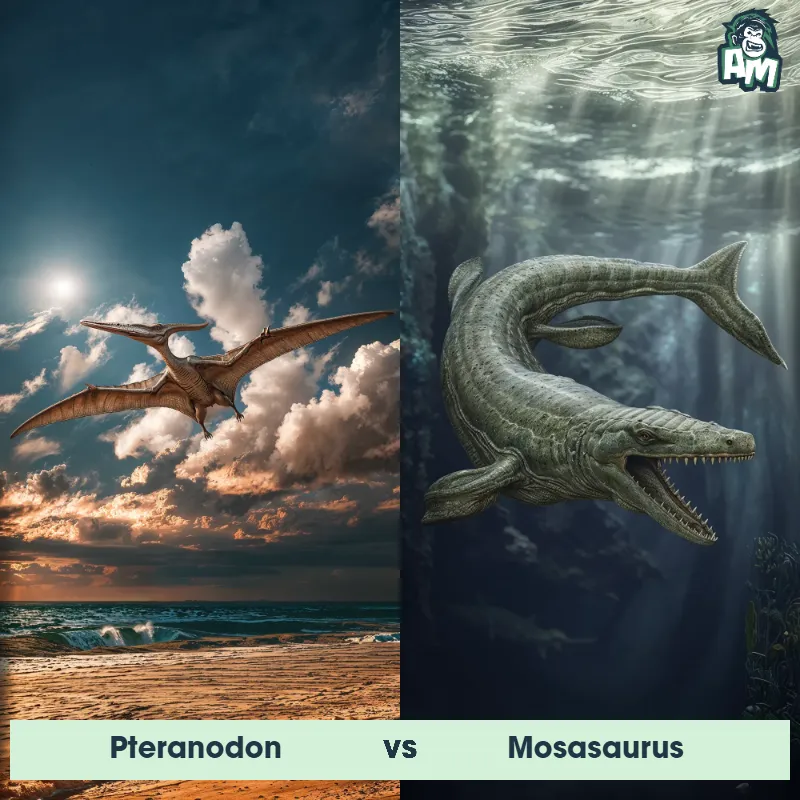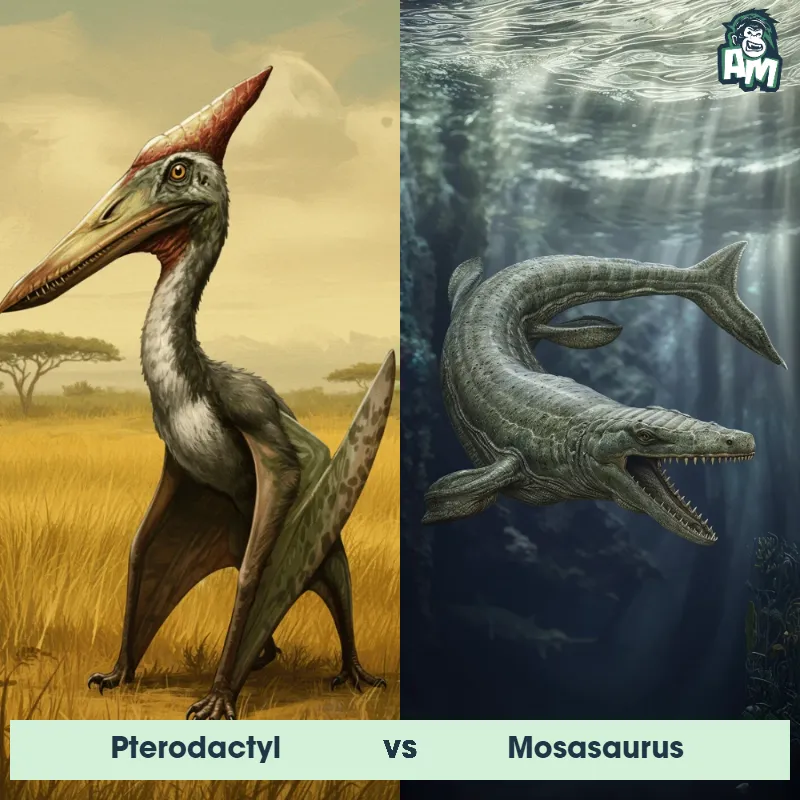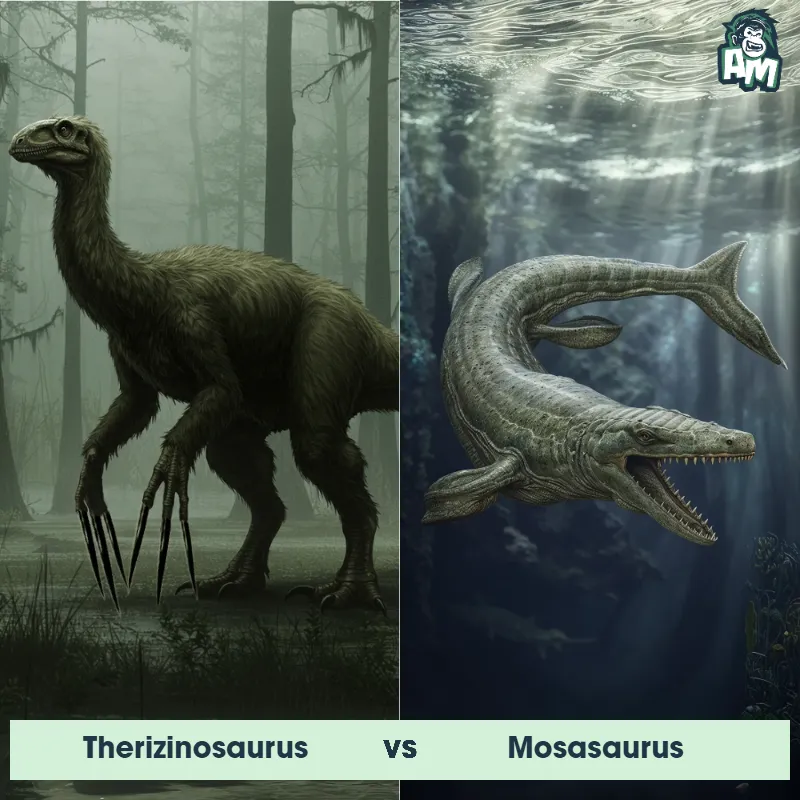The Mosasaurus
The Mosasaurus, a prehistoric marine reptile, was a powerful predator with sharp teeth and a streamlined body designed for fast swimming. It could reach lengths of over 50 feet and had four paddle-like limbs that helped propel it through the water with ease. Mosasaurus had a double-hinged jaw, allowing it to swallow prey whole.
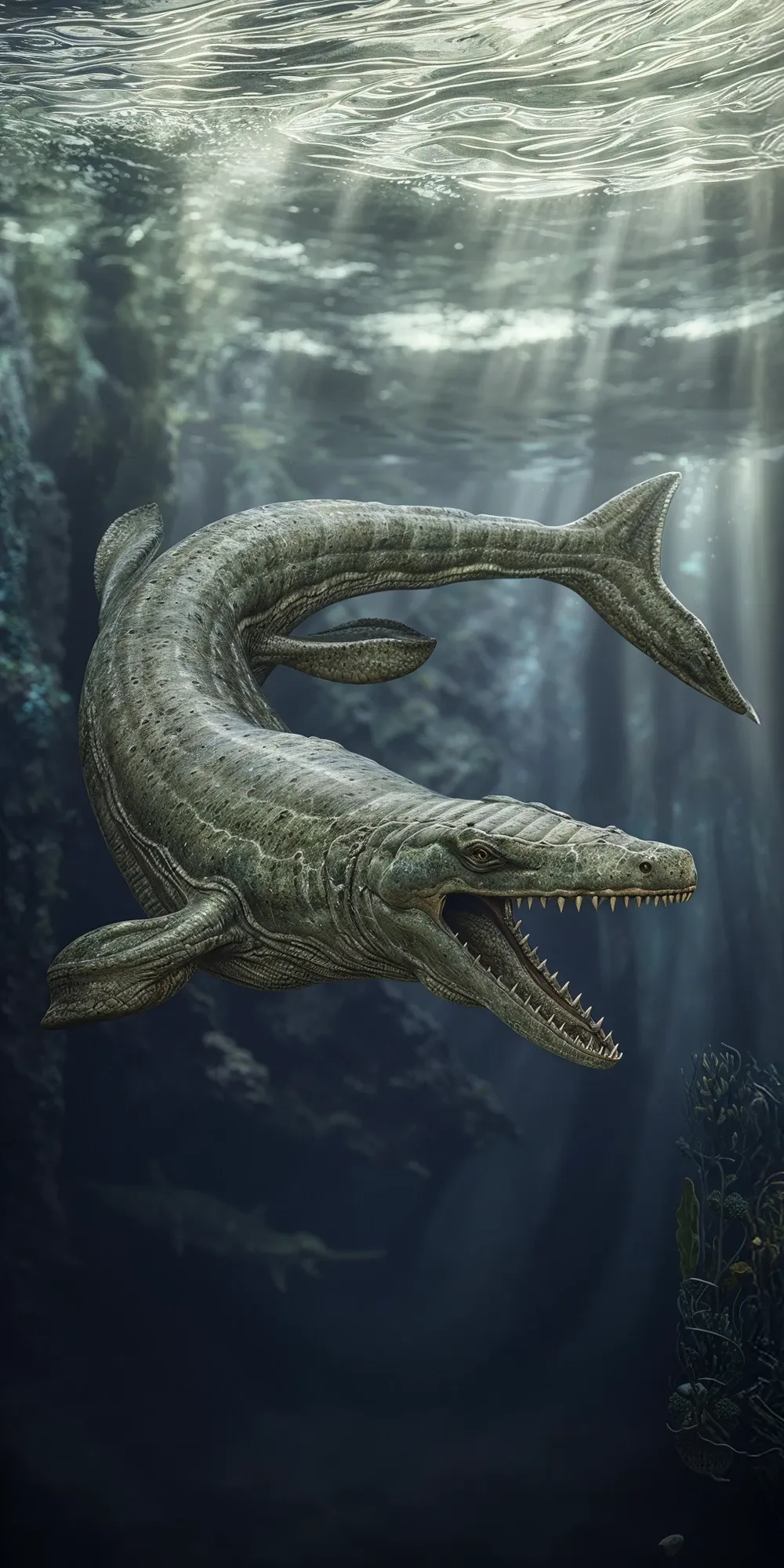
| Mosasaurus | |
|---|---|
| Size | Up to 56 feet (17 meters) |
| Weight | Up to 30,000 pounds (13,600 kilograms) |
| Speed | 20-25 mph (32-40 km/h) |
| Key Strength | Powerful jaws and teeth |
| Biggest Weakness | Vulnerable from the sides |
| Scientific Name | Mosasaurus |
| Family | Mosasauridae |
| Habitat | Oceans |
| Geography | Worldwide |
| Diet | Fish, turtles, smaller marine reptiles |
| Lifespan | 20 years - 30 years |

The Mosasaurus
The Mosasaurus, a prehistoric marine reptile, was a powerful predator with sharp teeth and a streamlined body designed for fast swimming. It could reach lengths of over 50 feet and had four paddle-like limbs that helped propel it through the water with ease. Mosasaurus had a double-hinged jaw, allowing it to swallow prey whole.
Fun Fact: Mosasaurus was not actually a dinosaur, but rather a type of marine reptile that lived during the Late Cretaceous period, around 70-66 million years ago.
| Mosasaurus | |
|---|---|
| Size | Up to 56 feet (17 meters) |
| Weight | Up to 30,000 pounds (13,600 kilograms) |
| Speed | 20-25 mph (32-40 km/h) |
| Key Strength | Powerful jaws and teeth |
| Biggest Weakness | Vulnerable from the sides |
| Scientific Name | Mosasaurus |
| Family | Mosasauridae |
| Habitat | Oceans |
| Geography | Worldwide |
| Diet | Fish, turtles, smaller marine reptiles |
| Lifespan | 20 years - 30 years |
Mosasaurus Matchups
We use AI to simulate matchups between the Mosasaurus and other animals. Our simulation considers size, strength, and natural predatory behaviors to determine the most likely outcome.
Mosasaurus: Diet, Predators, Aggression, and Defensive Behaviors
What did Mosasauruses eat?
Mosasauruses were massive marine reptiles that primarily fed on a diet of fish, sea birds, and other marine reptiles. Their sharp teeth were well-suited for catching and tearing prey underwater, allowing them to be efficient hunters in their aquatic environment.
Did Mosasauruses have any predators?
As apex predators of the seas during the Late Cretaceous period, adult Mosasauruses had few natural predators. However, young or injured individuals may have been vulnerable to larger marine creatures such as other Mosasauruses or large sharks.
Were Mosasauruses aggressive?
Mosasauruses were believed to be aggressive predators, using their powerful jaws and sharp teeth to hunt and capture prey. Their large size and streamlined body allowed them to move swiftly through the water, making them formidable predators in their underwater realm.
Did Mosasauruses fight?
Mosasauruses were solitary hunters and likely did not engage in fights with others of their kind, except possibly during territorial disputes or breeding season competition. They were more focused on hunting and feeding on their own prey rather than engaging in physical confrontations with other Mosasauruses.
How did Mosasauruses defend themselves?
Mosasauruses were well-adapted for defending themselves against potential threats in their environment. Their large size, powerful jaws, and predatory skills likely served as their main defense mechanisms. Additionally, their streamlined bodies and speed in the water may have allowed them to evade or escape from dangerous situations.
What was their biggest weakness in a fight?
Despite their formidable size and hunting abilities, Mosasauruses may have been vulnerable when faced with larger or more powerful marine predators, such as other Mosasauruses or massive sharks. Their size and strength could be outweighed by a larger and more aggressive predator in a fight, making them susceptible to attacks from such formidable foes.
Fun Fact: Despite their size, Mosasaurus were not true dinosaurs, as they lived in the ocean and belonged to a different group of reptiles called squamates.
Fun Fact: The name "Mosasaurus" is derived from the Latin word "Mosa," which refers to the River Meuse in the Netherlands where the first Mosasaurus fossil was discovered in the 18th century.



